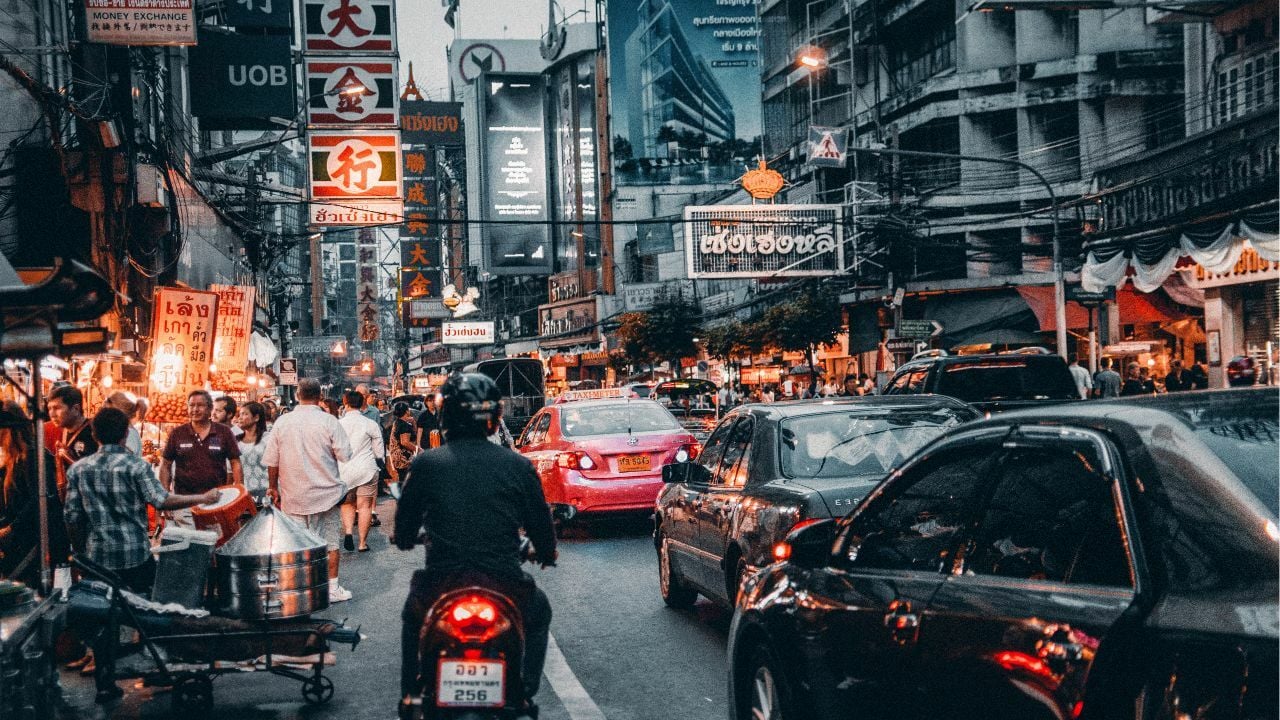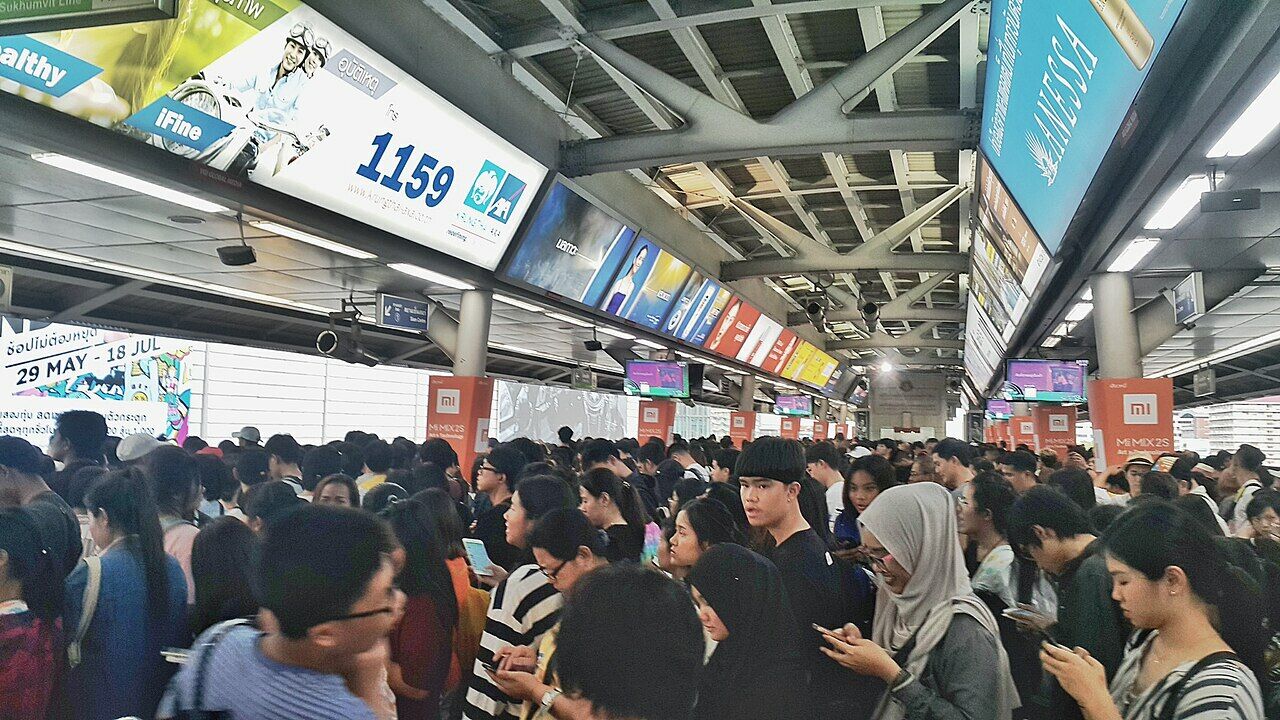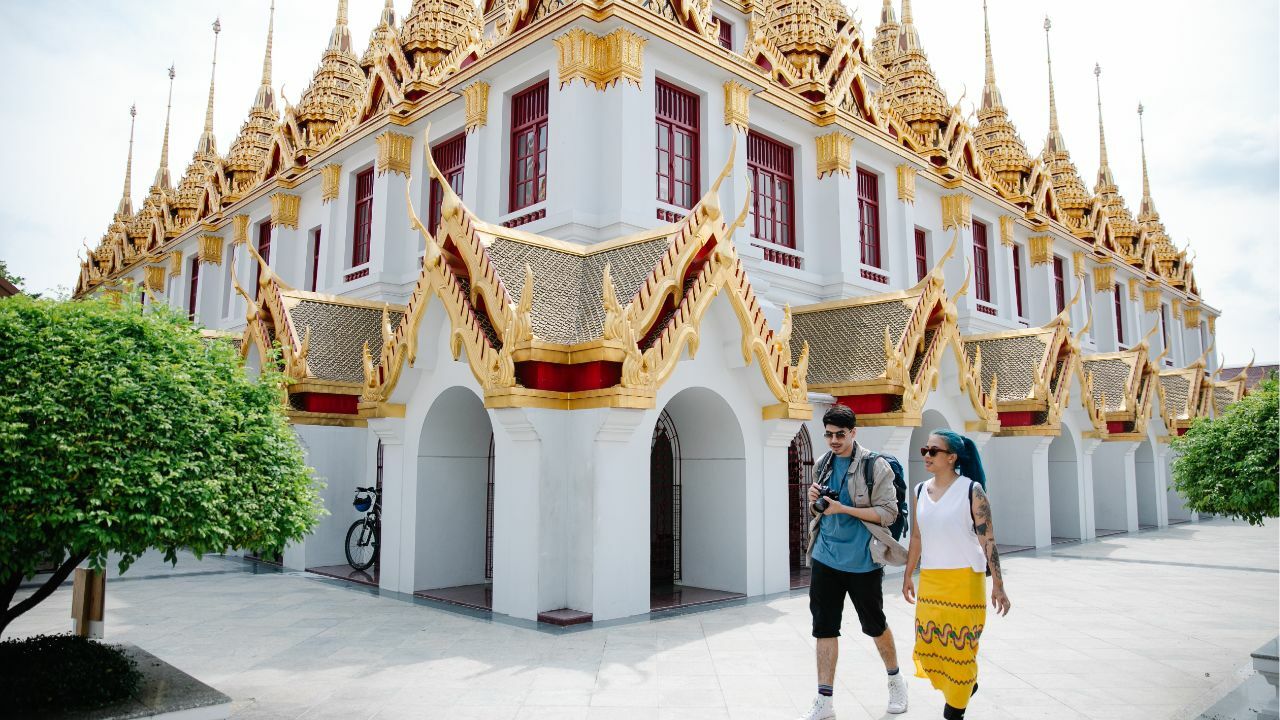Is Thailand suffering from overtourism?
Too many tourists but not enough — Thailand’s travel paradox

As the years have passed, Thailand has grown into a bucket list essential for travellers all around the world. For those looking for stunning natural scenery or bumping nightlife, Thailand has proved to be the place to be.
Though in more recent years, overtourism has become more and more of a topic within the media.
At the same time, however, there are signs that this year, Thailand’s tourism industry is beginning to falter. Rising costs, driven by inflation, are making some areas too expensive for many travellers, pushing tourists towards more affordable destinations like Vietnam.
Overtourism is defined by Dictionary.com as “a situation in which too many tourists travel to a popular destination, causing the place to suffer negative environmental, economic, and sociocultural impacts.”
While tourism can be an extremely helpful tool for a country’s growth, overtourism can prove to be detrimental to locals.
I have interviewed Alessio, the content editor at Thaiger, who is half Thai and half Italian, born in Bangkok and has spent a considerable amount of his life around Southeast Asia and Thailand.
“This is growth that is needed for Thailand, yes, but at the expense of people who live here is not the right path.”
When it comes to Thailand, the question now is: Has overtourism become too much?
With the Thai government aiming to bring in over 40 million tourists in 2025, there’s no question that the country is becoming oversaturated with travellers, and both the positive and negative impacts are increasingly felt by Thai communities.
On this page
| Topic (Jump to section) | Description |
|---|---|
| How overtourism in Thailand is affecting local life | Overcrowding, rising costs, and loss of local culture are making life more difficult for locals in Thailand. However, it seems that the affects are also decreasing tourism as well. |
| Navigating travel in Thailand with respect | Understanding Thai culture and being respectful is crucial for tourists to ensure a positive experience for both locals and visitors. |
| The sterilisation of Thailand’s culture | The shift toward catering to tourists has led to a diluted version of local life, often neglecting authentic Thai experiences. |
| Everyone has a responsibility | Both the Thai government, the people, and travellers must work together to manage overtourism and preserve Thailand’s cultural heritage. |
How overtourism in Thailand is affecting local life

The downsides of overtourism in Thailand have seeped into the daily lives of locals and expats across the country.
From harmful effects on local businesses that find themselves unable to compete with foreign competition, to highly inflated prices driving out locals who have not seen an increase in wages, it’s clear that Thai livelihoods and lifestyles are being sold out for the sake of international tourism.
In addition, the overcrowding of public services, such as transport, is a real issue for those who rely on them for daily life.
“Commuting is more difficult now as the BTS and MRT are so crowded that I have to literally wait for a few trains just to get to the edge of the door.
“It’s more noticeable around big areas such as Terminal 21 for me because it’s where I need to commute to go to work, but it also happens to be an area that draws in a lot of tourists.”
Even on a personal level, it’s clear that overtourism is taking away from the culture that used to be so heavily present in the country, sacrificing local connections for corporate empires.
In our interview, Alessio joked about the smaller impacts of overtourism and how it has shaped his view:
“Not that I would say that it’s a bad thing that more people are coming into the country, but I dread the moment they find my favourite spots.”
Navigating travel in Thailand with respect

“Thais are not props; they are people too.”
From blatant acts of racism to complete cultural disrespect, there’s no shortage of issues found with some travellers visiting Thailand.
Viewing the country only as a getaway or a place to party, local people living their daily lives are often disregarded.
Does this mean all tourists are bad? Not at all. But it does mean we should be actively working to engage with Thailand in a genuine, respectful way.
Thailand is much more than international chain restaurants and overcrowded beaches. It is a country with heritage, culture, and its own way of life.
“The thing about Thais, though, is that they are happy to welcome tourists and foreigners to enjoy what they love as well. The problem for me comes from when the tourists do not want to see the true Thailand and just what they see on television or what they hear.”
Though this isn’t how it’s often marketed, it’s important to understand there’s much more happening behind the scenes than what most travellers see.
The sterilisation of Thailand’s culture

With the intense tourism drive, Thailand has catered extensively to the needs and wants of travellers.
Because of this, local life is being pushed aside, and instead of experiencing the true Thai way of life, both tourists and, increasingly, locals themselves, are encountering a heavily edited version.
“[When tourists visit] Thailand, the version they see is a heavily sterilised version of the chaotic beauty and sabai sabai life that it represents, especially since they are more likely to visit Bangkok first.”
It’s becoming ever more clear that the country is shifting away from its deep cultural roots and becoming populated with international chains.
While diversity can be a wonderful thing, there’s a fine line between embracing global influences and erasing the local identity.
“Where I live, I notice only Japanese, Korean, and Chinese restaurants, with not too many local Thai businesses left. And it sucks because I don’t eat here — I eat at the noodle shops all the way in Udom Suk every weekend.”
Everyone has a responsibility

Though the perception of tourism is the job of both the Thai government, the Thai people, and travellers to navigate it is important to understand the issue and its impacts on the country and the people that live within it.
“Do your homework, understand Kreng-Jai, saving face, and etiquette in Thailand, and make an effort.
“If anything, I’m happy that Thailand is getting more recognition. My issue stems from the fact that I do not like that the country is trying to gain tourism through short-term solutions at the expense of the Thai people.
Every tourist who comes to Thailand or expat who lives here is a mini ambassador who will reflect how their country is seen based on their behaviour.
“You don’t have to agree with everything Thais do, but you need to be mostly respectful.
“The Thai person who lives their whole life in Thailand is getting tired of this. The Expat
who came to Thailand 30 years ago, respects Thailand, and loves the place, is getting
tired of it.”
On top of that, now there are concerns that with the short-term solutions to drive up tourism, the wandering eye of the tourists who are looking for more affordable places like Vietnam will continue to affect the Thai economy negatively. If it’s not the case that Thailand is overflowing with tourism, the effects will linger.
At the heart of it all, Thailand’s beauty lies not just in its beaches, temples, or nightlife, but in the people, the culture, and the everyday life that still shines through, if you take the time to see it.
Let’s make sure it stays that way.
Latest Thailand News
Follow The Thaiger on Google News:


























